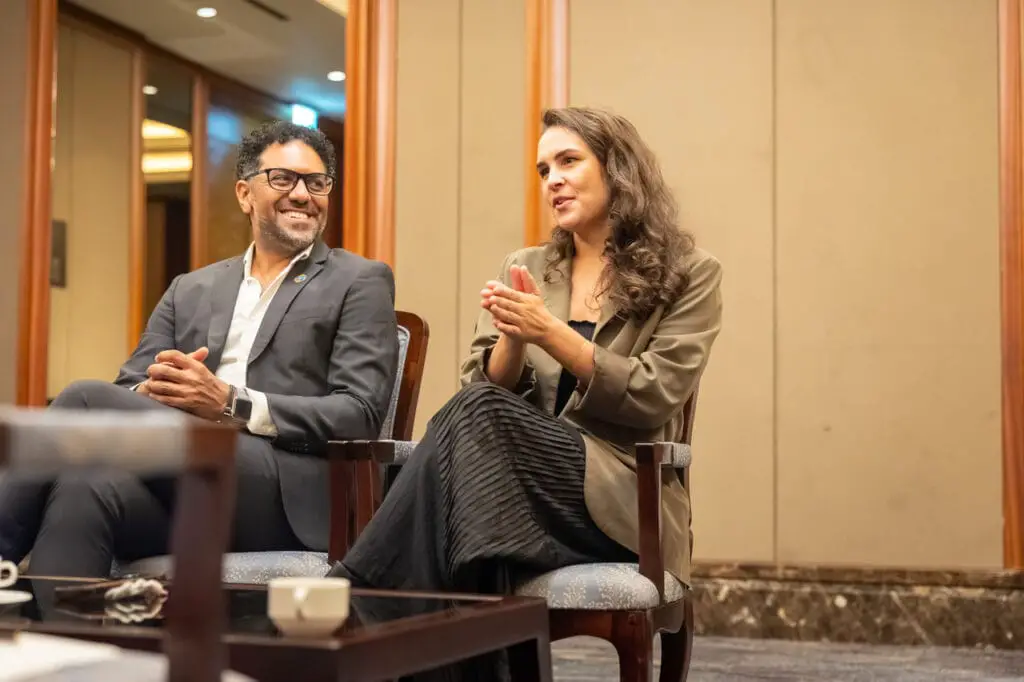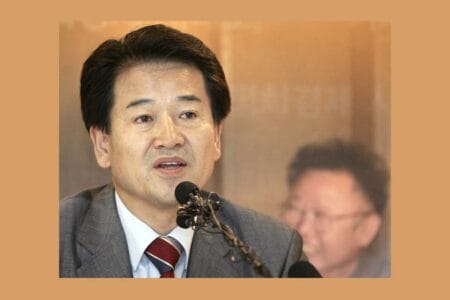August 14, 2025
SEOUL – In the digital era, a new ecosystem of online creators, communities and algorithms is reshaping conversations around gender.
Some of these spaces, known broadly as the manosphere, are fueling reactionary ideas about masculinity, embedding harmful stereotypes, and, experts warn, accelerating gender-based violence.
“The dangerous part is that technology is becoming our new reality,” said Emad Karim, Advocacy, Campaigns & Innovation Coordinator at UN Women’s Regional Office for Asia and the Pacific, during an interview with The Korea Herald. “Men have more power, more voice, more access to those tools and women have definitely less access and space to express themselves.”
Karim points to a structural imbalance: Men historically have had earlier and greater access to devices, internet connectivity and the policymaking structures that govern digital platforms. That influence is magnified by the speed with which harmful actors adopt emerging technologies, from deepfakes to AI-generated harassment, often outpacing regulation.
Social media’s monetization model, Karim warns, rewards extreme content. “The weirder they get, the more profit they get. The culture of looking for something extremely shocking for dopamine is going to really affect a whole generation.”
Roots of the manosphere
Caroline Hayes, Senior Officer for Strategic Initiatives at Equimundo, stresses that the manosphere isn’t new, but technology has scaled it dramatically.
“Outward misogyny and violence against women have been around for a very long time, but with the advent of the technologies that we have, what was a subculture in the past has now become platformed and on a whole different scale.”
Hayes explained that what was once niche, fringe misogynistic rhetoric is now woven into aspirational, mainstream narratives, often packaged through the personas of wealthy, influential men.
These figures present themselves as self-made success stories, using their lifestyles, possessions and confidence as proof of their authority. Within this framing, messages about women’s roles, male dominance and gender dynamics are presented not as extremist ideology but as part of a “winning formula” for becoming a high-status man.
Young men are told that if they want to achieve similar success — measured in material wealth, social influence and sexual access — they must adopt these views and behaviors toward women. This repackaging, Hayes noted, makes the content more palatable and harder to challenge, as it appears less like overt hate speech and more like lifestyle advice or self-improvement guidance.
However, under its loose umbrella are pickup artists, men’s rights activists and “incels,” short for “involuntarily celibate.” The most heavily used mainstream platforms like TikTok, YouTube and Reddit are just reflecting that harmful “red-pilled” content.
The “red-pilled” concept is borrowed from the movie “The Matrix” and refers to a revelation of, or awakening to, a deeper truth. Within the context of the manosphere, so-called red-pilled content often frames feminism as a deception and positions men as the true disadvantaged class. Once “awakened,” followers are told to reclaim dominance through prescribed scripts of “alpha” masculinity.
Why young men are drawn in
Hayes points to “social atomization” — personalized feeds, isolated online spaces and political value gaps between men and women — as a key driver.
“Men are much less likely to seek help, and therefore they’re finding community and belonging in some of these more harmful spaces that are actually telling them, ‘you are the victim … and it’s women and LGBTQ people who have done this to you.’”
Economic insecurity adds fuel. “Most people are actively having a more bleak economic outcome than their parents. We create a perfect storm of fear, insecurity and urgent solutions that paint a clearer picture of who the enemy is.”
Karim adds that the attraction is reinforced by high-profile models of leadership promoting self-serving, exclusionary masculinities. “That gives a false promise to the younger generation … if you want to be successful, you need to follow that rule.”
Risks to society
The consequences extend beyond individual attitudes. Hayes warns: “The single most important protective factor in gender-based violence is having gender-equal societies. The manosphere is about a hierarchical structure in which men should have control. That’s not gender-equal. And that’s what leads to high rates of gender-based violence … and social fracturing.”
For Karim, the deeper danger is eroding social cohesion. When rights are framed as a zero-sum game, public spaces become “an environment with uneasiness for who deserves more space or more leadership.”
Both experts reject fatalism. Hayes sees hope in young men who “actively do the work to resist” narrow gender scripts. Meeting them “in the spaces where they are” — even through online games like Roblox — allows for “low-stress” education on healthy masculinity and interdependence.
Karim frames technological transitions as opportunities. “Every new transition is an opportunity to bring women up to speed and have more women coding, more women creating AI solutions. When we empower more women and have more feminist principles, it’s for the benefit of everyone.”
Ultimately, Hayes believes the key is reframing care as universal: “Men are just as wired to care … If we can create the support structures to do what they were born to do, we can all thrive.”
The conversation around the manosphere also echoed in broader policy discussions that day, as Karim and Hayes joined other experts at the “APEC Women and the Economy Forum Side Event: Policy Forum on Technology-Facilitated Gender-Based Violence” at the Lotte Hotel in Seoul.
The forum, hosted by the UN Women Knowledge and Partnerships Centre, underscored the urgent need for coordinated action to curb technology-driven abuse, emphasizing prevention, cross-border cooperation and inclusive digital spaces.







